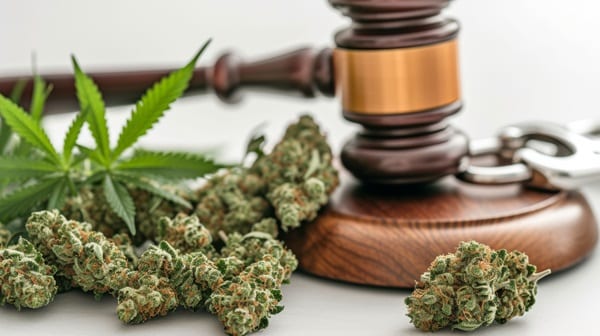Since 1970, marijuana has been classified as a Schedule I drug under the Controlled Substances Act (CSA), along with heroin, LSD, and ecstasy. However, that could soon change. That’s because the U.S. Drug Enforcement Administration (DEA) plans to reclassify marijuana as a less dangerous drug.
What does Schedule I mean?
Under the CSA’s classification system, a Schedule 1 drug is considered to have no accepted medical use and a high potential for abuse. The DEA proposal would recognize the medical uses of cannabis and acknowledge there is less potential for abuse with marijuana than with more dangerous drugs.
Marijuana would become a Schedule III drug, considered less dangerous than drugs listed in Schedules I and II, with a moderate to low potential for physical and psychological dependence.
But one thing the reclassification will not do is legalize marijuana for recreational use under federal law.
Greater acceptance has led to changes in the law
The proposal must be reviewed by the White House Office of Management and Budget before it is released for public comment.
President Joe Biden and lawmakers from both political parties have called for the reclassification. Marijuana has steadily become more accepted and decriminalized, especially among younger people. According to a Gallup poll from last fall, 70% of adults support legalizing marijuana – up from about 30% in 2000.
States have led the movement to decriminalize the drug. Medical marijuana is legal in 38 states, and recreational marijuana is legal in 24.
Medical marijuana has been legal in Michigan under state law since 2009. Recreational marijuana has been legal for adults over 21 since December 2018. But there are some restrictions:
- Marijuana can only be legally consumed on private property, out of the view of the public.
- Adults can legally possess up to 2.5 ounces of marijuana in public places but not near a school or on federal land.
- Adults can possess up to 10 ounces at home for recreational use.
- Adults can grow up to 12 marijuana plants at home.
On the federal level, Schedule III drugs are still controlled substances. That means people who traffic them could still face federal criminal prosecution. There isn’t likely to be much impact on possession cases, as federal prosecutions for simple possession of marijuana are now rare.
The proposal does have its critics, including Jack Riley, a former deputy administrator of the DEA who believes the use of marijuana could lead to the use of other, more dangerous drugs.
“But in terms of us getting clear to use our resources to combat other major drugs, that’s a positive,” Riley said, pointing out that fentanyl is responsible for more than 100,000 deaths in the U.S. a year.
Facing marijuana charges in Michigan?
If you’ve been arrested for violating Michigan’s marijuana laws, it’s important to get legal advice from an experienced criminal defense attorney as soon as possible. A conviction on marijuana charges could result in significant fines and even jail time in some cases.
The lawyers at Manley & Manley are ready to help. We can review the evidence against you, look for holes in the prosecution’s case, and build a strong legal defense. We may be able to fight for an acquittal or get your charges reduced.
There’s no time to waste. Contact us today to schedule a free case evaluation.


